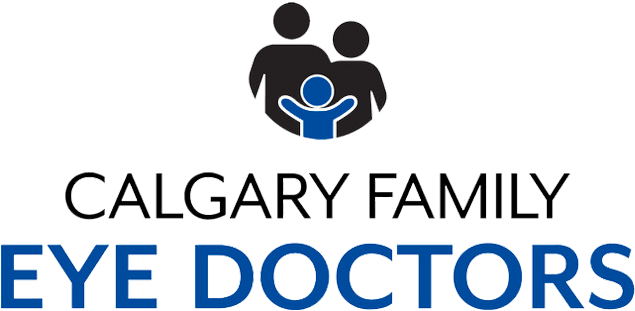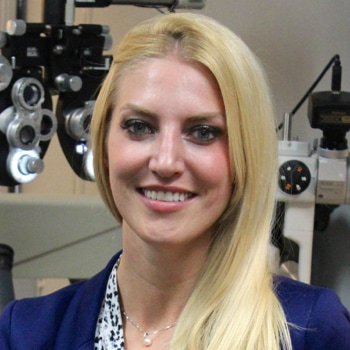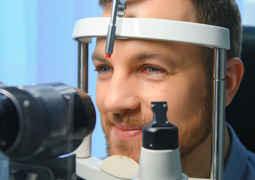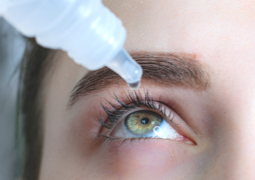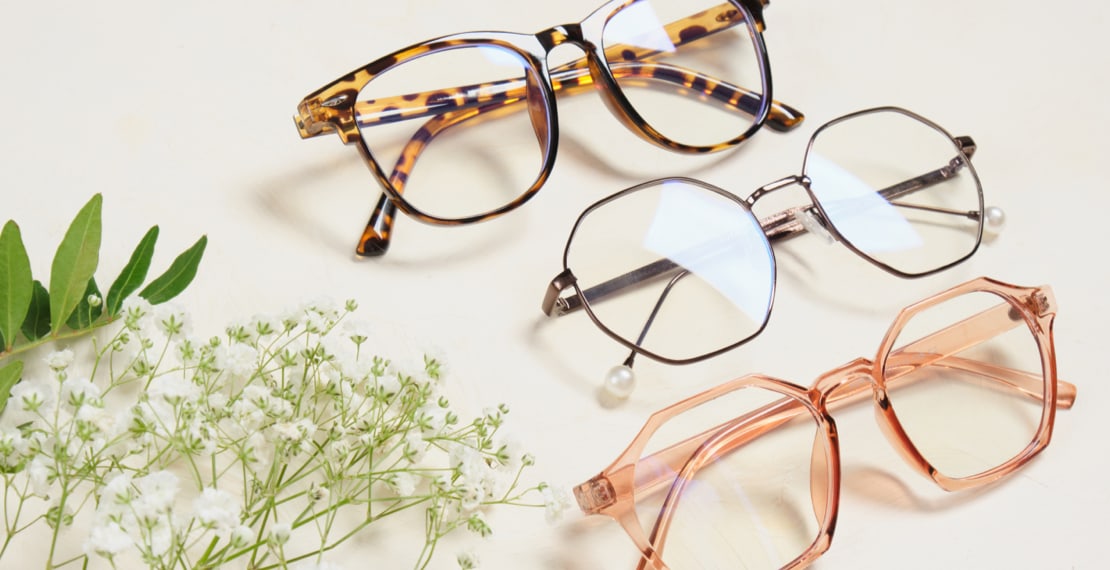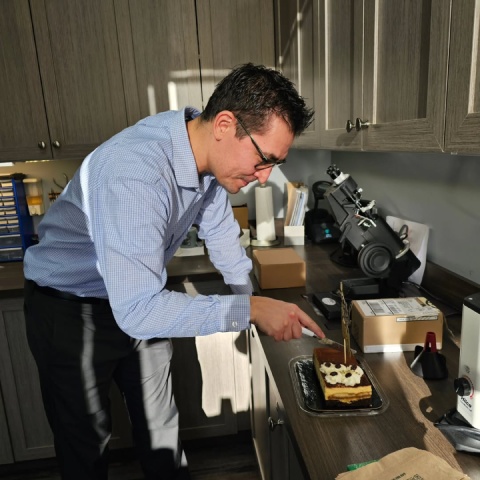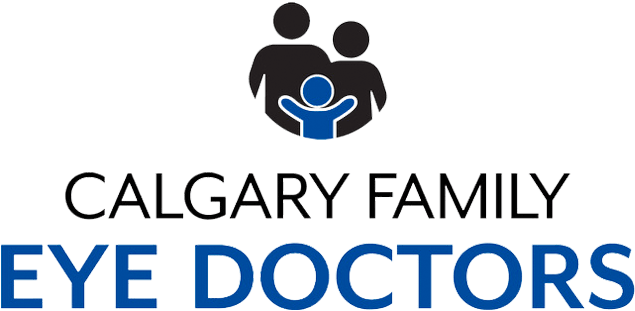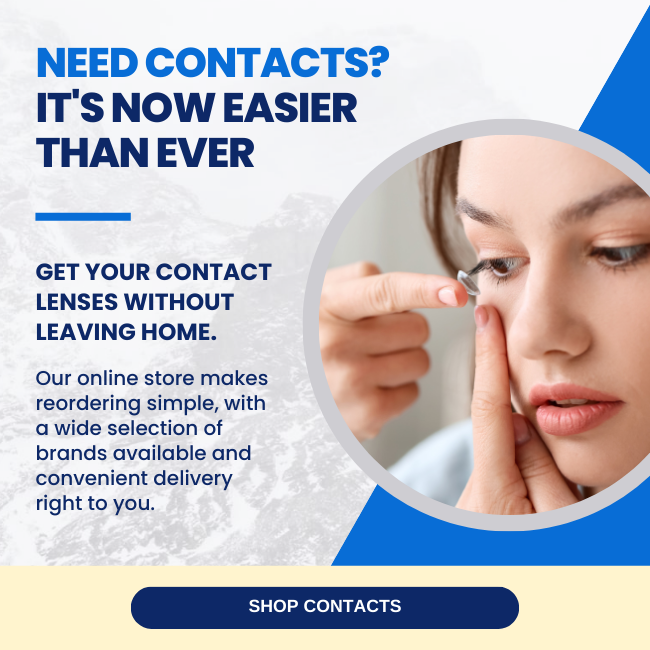When it comes to eyewear, it’s crucial that your glasses have a perfect fit. If your eyeglasses don’t fit well, then they might not correct your vision effectively. Whether you’re at your computer, enjoying the outdoors, or reading a book, a correctly fitted pair of glasses can be the difference between comfort and frustration. So how can you tell if your glasses fit properly?
Your eyeglasses should sit comfortably on the bridge of your nose without any pinching or piercing. They should also be balanced between your eyes, such that they don’t cause unusual pressure.
How Are Glasses Supposed to Fit?
It’s essential to take the time to make sure that your glasses fit properly. It’s not just about how they feel on your face—although that’s clearly important too—but also about whether they’re correcting your vision. The ideal state of a good pair of glasses is a seamless combination of comfort and vision correction.
In order to correct your vision, your eyeglass lenses are shaped with a curve in order to alter light before it reaches the eye. The degree of this curve changes depending on your optical needs. When your glasses fit properly, the optical centre of your lenses sits directly in front of your pupils. This maximizes your lenses’ corrective effect.
When your glasses don’t fit properly, the optical centre of the lens does not line up correctly with your pupils. The curve of your lenses doesn’t match up with your eyes. While you still may have passable eyesight, the mismatch between the lens and your eyes reduces the degree to which your lenses can correct your vision. This can easily lead to headaches, eye strain, and overall discomfort—not to mention those tight sensations of pressure near the temple, nose, or ears.
So how are glasses supposed to fit? There are 3 key areas to consider: the nose, the eyes, and the temples.
Nose
Your glasses should rest comfortably on the bridge of your nose without pinching or sliding. If your glasses are too tight on the bridge of the nose, then they might cause pinching in the area, leading to discomfort and visible red marks on your skin.
On the other hand, if your glasses are too loose, then they might slip down your nose. It helps to find a pair of glasses with adjustable nose pads—this helps give a snug, yet comfortable fit.
Eyes
Your glasses should sit evenly on your face, with the lenses centred in front of your eyes. This corrects your vision according to the design of your lenses and helps prevent the distorted images that can result from off-center lenses.
The top of your frames should be in line with your eyebrows, allowing you to see clearly without needing to tilt your head. Meanwhile, your lenses should cover your eyes entirely without obstructing your peripheral vision.
Temples
The arms of your glasses should extend straight back to your ears without causing pressure. They should rest lightly on the sides of your head and curve gently around the back of your ears.
If your glasses are too tight on your temples, you might experience headaches and/or discomfort behind your ears. On the other hand, if they’re too loose, your glasses may be prone to sliding forward.
How to Tell if Your Glasses Don’t Fit
First, note how often your glasses slide down your nose during the day. They shouldn’t be able to slip and move around; if they’re not secure and comfortable, it’s likely that your glasses don’t fit properly.
You should also keep an eye out for:
- Tightness near the nose, temples, or ears
- Any feelings of physical discomfort
- Constant slipping
- Blurry or distorted vision
Making sure your glasses fit properly is the first step towards enjoying clear, comfortable vision—without constantly adjusting the frames.

How to Keep My Glasses From Slipping
Keeping your glasses from slipping can make a world of difference to your daily comfort. If you’ve ever noticed that you’re constantly pushing your glasses back up, you’ve likely wondered how to stop them from slipping in the first place.
Some possible solutions include:
- Switch to adjustable nose pads to help create a precise, comfortable fit
- Choose frames with a bridge that tightly secures itself to your nose without discomfort
- Make sure your glasses’ arms are the right length
- Try anti-slip products like silicone ear hooks and nose pads
And, if you ever need help, visit your optometrist. They can assess your eyeglasses and make any necessary adjustments to help you maintain a comfortable fit.
Get Help for Your Eyewear
Finding the perfect fit for your glasses is crucial for both comfort and clarity. If you’re experiencing any problems with the fit of your glasses, contact our team at Calgary Family Eye Doctors. We’re dedicated to making a difference one patient at a time, so book an appointment with us today!
